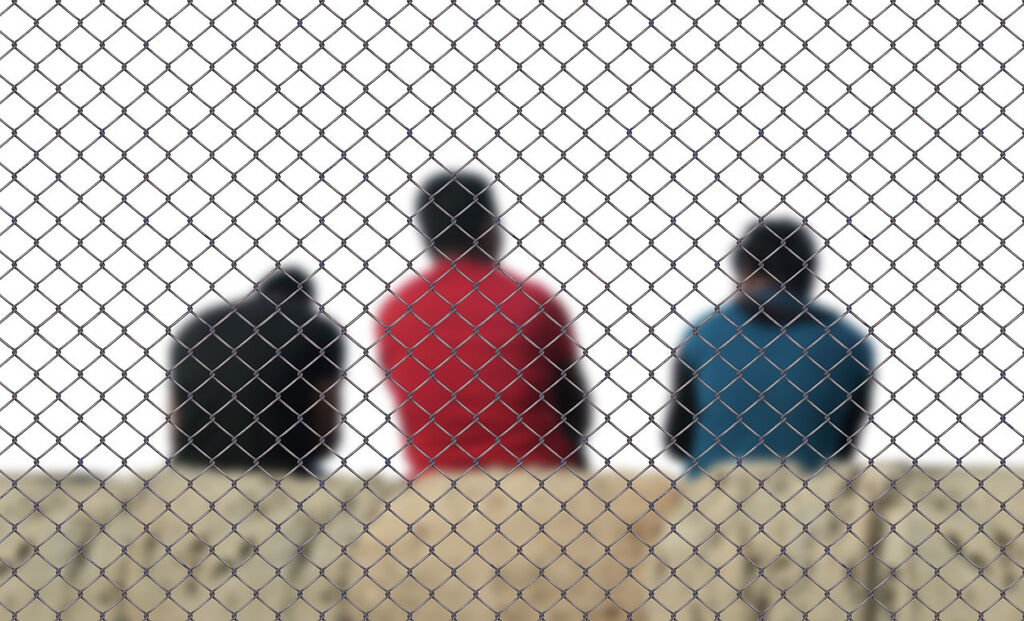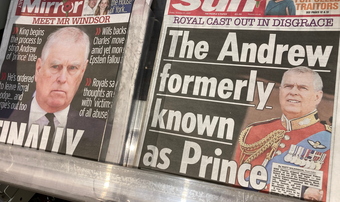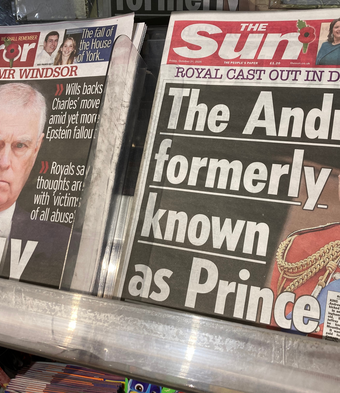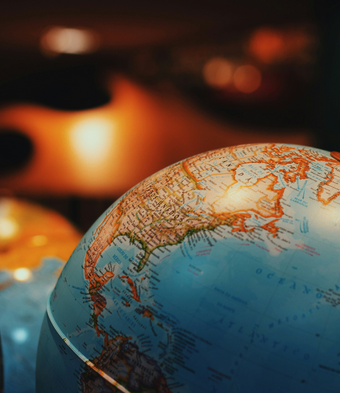Illegal Migration Bill: a compassionate approach?

‘We will pass new legislation to stop small boats, making sure that if come to this country illegally, you are detained and swiftly removed.’
Prime Minster Rishi Sunak made this commitment in his first major speech of 2023 and this week, the long awaited ‘small boats’ bill was introduced into the House of Commons.
As the human trafficking policy lead for CARE, I had been preparing for this Bill, ready to take my place in the public square to push back on the Government's position if it was necessary.
Given this is an immigration bill (and given I work on human trafficking and modern slavery policy), you might be wondering why are CARE entering this contentious debate?
Unfortunately, the content of this Bill highlights a growing problem within this field: modern slavery and human trafficking are increasingly conflated with immigration. These are separate issues and should be treated as such!
It’s just as important to understand the difference between people smuggling and human trafficking. The former involves a one-off payment, made by people who want to be smuggled into the country. The latter involves ongoing control, coercion and people being kept against their will.
I will not overwhelm you with the detail of the Bill but there are a couple of broad points that I would like to make: (1) this Bill will apply to victims of modern slavery and human trafficking; (2) this Bill will prevent them from accessing support and justice.
I appreciate that many people want the government to have a plan to stop the boats. However, this is a complex situation. For so long, the government rhetoric surrounding this situation has been that ‘these people are gaming the system,’ that ‘they are taking advantage of our generous modern slavery laws to avoid deportation,’ and that ‘they are making spurious claims.’ There is a cost-of-living crisis, so why is the Government spending taxpayer’s money to support people who may not be genuine victims of modern slavery? These concerns are not without some merit.
But in the Home Secretary’s Ministerial speech on Tuesday, she described the Bill has a ‘humanitarian’ and ‘compassionate’ approach. This Bill will result in anyone who arrives illegally, being detained and deported within 28 days, even if they are a victim of modern slavery. The Bill claims that it will still identify potential victims, but also makes it clear that they will then be deported unless they meet a narrow set of criteria or are supporting police investigations, and even then, support and a leave to remain is not actually guaranteed.
On Twitter Rishi Sunak boasted, “If you come to the UK illegally: you can’t claim asylum; you can’t benefit from our modern slavery protections; you can’t make spurious human rights claims; you can’t stay.” This fails to acknowledge what modern slavery is. Most victims of modern slavery find themselves illegally in the UK as a result of coercion, force or deception.
How should we respond to modern slavery?
But let’s take a step back and set aside the legal minefield that is the Illegal Migration Bill.
How should we as Christians respond to the broader issue of modern slavery and human trafficking?
Slavery is an abhorrent crime: it strips people of their God given dignity. At CARE we believe that every person is made in Gods image and human trafficking is a gross violation of that truth. If we are to follow the example of Jesus’ life, our response to the most vulnerable in society should be one of love and compassion. We should be mobilised into action by His example, the power of the Holy Spirit and the biblical mandate, ‘to comfort the broken hearted and to proclaim that captives will be released, and prisoners will be freed.’(Isaiah 61 v 1).
Maybe when you hear the word ‘slavery’ it conjures up images of William Wilberforce in the 1800s and people being transported on large ships; it feels like it was a problem hundreds of years ago, but not now!
But there are more people living in modern slavery today than when William Wilberforce was campaigning for its abolition. It is estimated that there are nearly 50 million people in modern slavery globally, and in the UK alone last year, 16,938 people were identified as potential victims. Other studies suggest the number of people in modern slavery in the UK could be as high as 130,000.
It is a tragic reality that those who find themselves as a victim of modern slavery will have also suffered some form of exploitation; this could be forced labour, servitude, or sexual exploitation. As Christians this is not our fault, but it is our problem.
We should be repulsed by modern slavery, and it should invoke righteous anger. When we fail to act, we are denying the rights of modern slavery victims and we are failing in a command that the Lord has given us, ‘to love your neighbour as yourself… there is no greater command than this.’ (Mark 12:31). We are called to love, and that love should not be dependent on whether you entered a country by a legal pathway.
I am not suggesting open borders, or that the government should do nothing about immigration, and I know my focus is niche. But there are victims of modern slavery, who have already suffered in harrowing ways, and will suffer further as collateral damage from this Bill.
Watching our language
As Christians, when we are responding to questions about immigration, asylum and modern slavery we have to consider the language we use. If we believe that everyone is made in God’s image (Genesis 1:26-27), that should shape how we think, feel and talk about this issue. Psalm 8 tells us that human beings have been made a little lower than God himself (Psalm 8:6) and crowned with glory and honour. In that psalm, David probably had Genesis 1 in his mind, because he echoes and alludes to the glorious creation mandate the Lord God gave to Adam and Eve where he commanded them to be fruitful and to fill and subdue the earth (Genesis 1:28).
In other words, these truths apply to all human beings and that includes those who are coming across the channel. Therefore, we must carefully guard our hearts and our tongues. The reality of the image of God should mean we speak well of others and help infuse our responses to this whole debate with grace. The Apostle Paul commands us in Colossians 4:6 “let your speech always be gracious, seasoned with salt…”. That applies to you regardless of whether you support the small boars bill or not (or whether you're making up your mind).
Different versions of ‘compassion’
So do you think the bill is ‘compassionate’, as the Home Secretary insisted in the House of Commons? From my perspective, looking at how the legislation treats victims of modern slavery, the answer has to be no. In fact, having examined the details of the Bill, I’m not sure the government and I have the same definition of ‘compassion.’ Compassion is defined as pity or concern for the sufferings or misfortunes of others. Victims of modern slavery suffer violent abuse, are coerced, stripped of basic dignity and are left traumatised by their abusers. True compassion would lead to improved support for modern slavery victims, not conflating their situation with that of others who have not been coerced into labour exploitation or sexual exploitation.
What can you do?
For years campaigners such as CARE have been pressing on, ‘holding the government's feet to the fire’, calling for long term support for victims of modern slavery that will allow them to rebuild their lives and recovery from their experiences. The Modern Slavery Act 2015 was ground-breaking legislation, leading (amongst other things) to the creation of the role of the Independent Anti-Slavery Commissioner, a government appointed advocate for victims of modern slavery. Tragically, this role has been vacant for 18 months.
And what message are we sending? I have serious misgivings about the message this Bill has been sending: a message which says that if you are a victim of human trafficking, if you have been exploited, abused, beaten, raped but arrived in the UK illegally ,you cannot stay.
We are called to be light, so let’s shine some light on the darkness that is human trafficking and be a voice for truth that brings hope. Please continue to support the work of CARE, pray for those caught up in human trafficking, and pray for politicians as they take a courageous stand against the government’s false narrative. As Billy Graham once said, ‘courage is contagious, when a brave man takes a stand the spines of others are often stiffened’.






